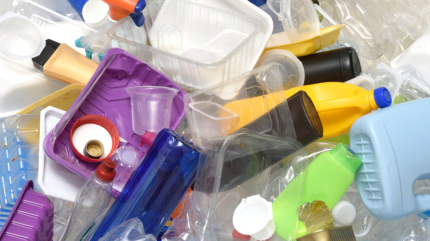[ad_1]

EU member states have backed a proposal to ban the use of the chemical Bisphenol A (BPA) in food and drink packaging.
BPA is a chemical used in the production of plastics and resins. The ban will affect packaging that has contact with food or drinks.
The chemical is used in the creation of plastic containers and kitchenware. It is also found in certain resins, such as those that coat the inside of metal cans.
The ban will be enacted by the European Parliament and Council following a “scrutiny period”, after which it will come into force later this year. There will be a phasing out period of the chemical to give the food and drinks industries time to adapt.
Brussels said there will be limited exceptions when no “safe alternatives” are available and the use of BPA does not pose a risk to consumers. “This will allow industry to adjust and avoid potential disruptions to the food chain,” the Commission said.
Last year, the European Food Safety Authority (EFSA) concluded BPA had “potential harmful effects on the immune system”.
Access the most comprehensive Company Profiles
on the market, powered by GlobalData. Save hours of research. Gain competitive edge.

Company Profile – free
sample
Your download email will arrive shortly
We are confident about the
unique
quality of our Company Profiles. However, we want you to make the most
beneficial
decision for your business, so we offer a free sample that you can download by
submitting the below form
By GlobalData
Following an investigation of the toxicity of BPA, Dr Claude Lambré, chair of EFSA’s panel on food contact materials, enzymes and processing aids, said: “We observed an increase in the percentage of a type of white blood cell, called T helper, in the spleen. They play a key role in our cellular immune mechanisms and an increase of this kind could lead to the development of allergic lung inflammation and autoimmune disorders.”
Last year, the European Environment Agency (EEA) said it found between 71% and 100% of people taking part in an EU human biomonitoring research project across 11 EU countries were likely exposed to “above safe health thresholds” of BPA.
The EEA’s executive director Leena Ylä-Mononen called for action at the time, warning that BPA: “poses a much more widespread risk to our health, than previously thought.”
In February, industry body FoodDrinkEurope told Just Drinks that food and drink manufacturers would “fully comply with any new regulations” but called for measures to be “proportionate” and realistic.
“Policymakers should also be mindful of how such regulatory measures could negatively impact food waste and packaging waste.
“If it’s not safe; it’s not food and those same rigorous standards apply to our food packaging.”
[ad_2]

